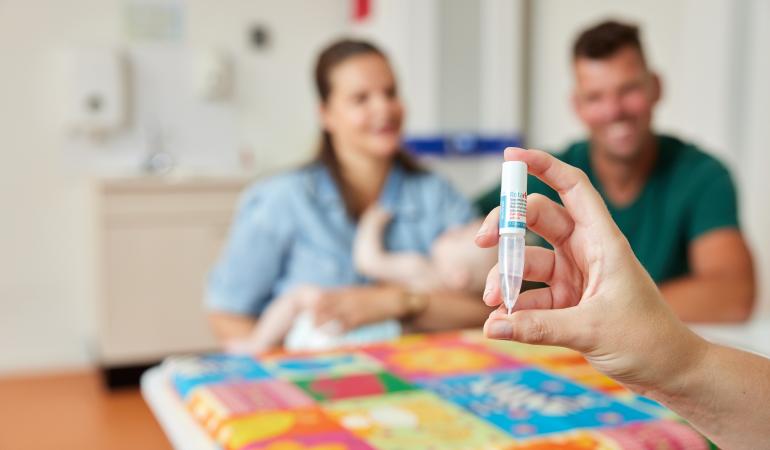
From 2024, rotavirus vaccination will be included in the National Immunisation Programme (NIP). Rotavirus can cause severe diarrhoea and dehydration in babies, in some cases requiring them to be hospitalised. All parents of babies born on or after 1 January 2024 will receive an invitation for a vaccination. The rotavirus vaccine is not administered as a jab but in the form of droplets that are ingested orally.
Rotavirus causes an inflammation in the gastrointestinal system and is very contagious. Children get a fever and (severe) diarrhoea, and they become nauseous and throw up. Young children are often infected with rotavirus. Even so, rotavirus is not widely known. This is because lab work is necessary to identify an infection, and such lab work is rarely carried out for children with diarrhoea.
Hospital
If children become dehydrated from prolonged or severe diarrhoea, they have to be hospitalised. Every year, this happens to about 3,500 children. On average, five or six children die from a rotavirus infection each year.
Protection against rotavirus
To prevent hospitalisations and death, rotavirus vaccination will be added to the National Immunisation Programme from 2024. The rotavirus vaccine prevents children from becoming severely ill due to a rotavirus infection. The protection from the vaccine will last at least three years. This means children will be protected during the age at which they are most vulnerable.
Existing vaccine administered in the form of droplets
The rotavirus vaccine is not administered as a jab but as a liquid in a small tube. At the Well-Baby Clinic, drops from the tube will be put in the child’s mouth. Children will receive the vaccine around the age of six to nine weeks, and again around the age of three months. The vaccine is not new – it has been administered in several countries since 2006, where hospitalisations of children due to rotavirus infections have fallen considerably.
Side effects
Like any other vaccination, vaccination with the rotavirus vaccine may result in side effects. Children may feel a little unwell or have a little bit of diarrhoea. This will be shorter and less serious than the effects of rotavirus. In rare cases, there may also be other side effects. These are listed on the website of the National Immunisation Programme.